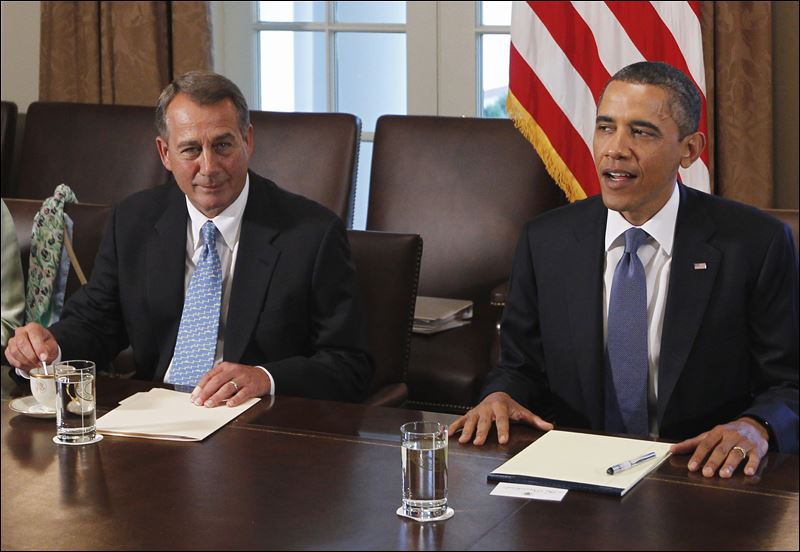
America’s Debt Limit Discussions: Don’t Take the World Down Your Path
The deadline is Aug. 2. If the U.S. Congress doesn’t raise the federal debt limit, which is currently $14.3 trillion (approximately 1.13 quadrillion yen), the government’s cash will run out, government workers will not be paid, Social Security funds will be stopped and administrative stagnation will be unavoidable.
However, the biggest concerns are chaos in the financial markets or a shock to the global economy due to a default. The markets are still saying it’s impossible, advising trust in a settlement at the 11th hour. For a short time, however, the yen exchange market gradually raised to break 77 yen per dollar.
American credit rating agency Moody’s Investors Service first awarded the highest AAA rating to American debt in 1917, to a country that seemed the furthest from a default for nearly a century. It is extremely difficult to predict the influence of an unexpected collapse.
However, regardless of market and global insecurity, Washington is still continuing an inward-facing political game. Minority parties, rather than narrowing the gap, seem to be widening it beyond repair.
The Republican plan is to raise the debt ceiling in two phases this year and next and to discuss a fundamental deficit reduction plan in the second phase. This aims to shake their competition next fall just prior to the elections. In this regard, the Democrats want to raise the limit one time by the amount they will need until the end of next year.
Politicians in any country think of their next elections. Especially in the U.S. House of Representatives, where every seat is up for election every two years, congressmen always tend to take the stances of their constituencies. The Republican Party took the majority in the House of Representatives in last year’s midterm elections, and the tea party, a conservative grassroots movement that helped bring about that political victory, is applying great pressure to firmly oppose raising the limit.
However, what they should prioritize is confidence in the dollar, which is of much greater national interest. Of course, it is urgent to make an agreement to raising the debt ceiling, but an effective and drastic deficit reduction plan is essential. A half-baked settlement would eventually invite a downgrade and, even if short-lived, low global stock prices would cause fear from a sudden drop in the dollar (a sudden spike for the yen) or a sudden rise in long-term interest rates.
“We can’t allow the American people to become collateral damage to Washington’s political warfare.” In a deadlock situation, President Obama addressed the nation to call for a compromise. However, it is not only the American public that gets entangled. It hasn’t even been three years since the shock over Lehman Brothers, and the world is again involved in a financial crisis born in America. No matter which way you look at it, that is hard to accept.

